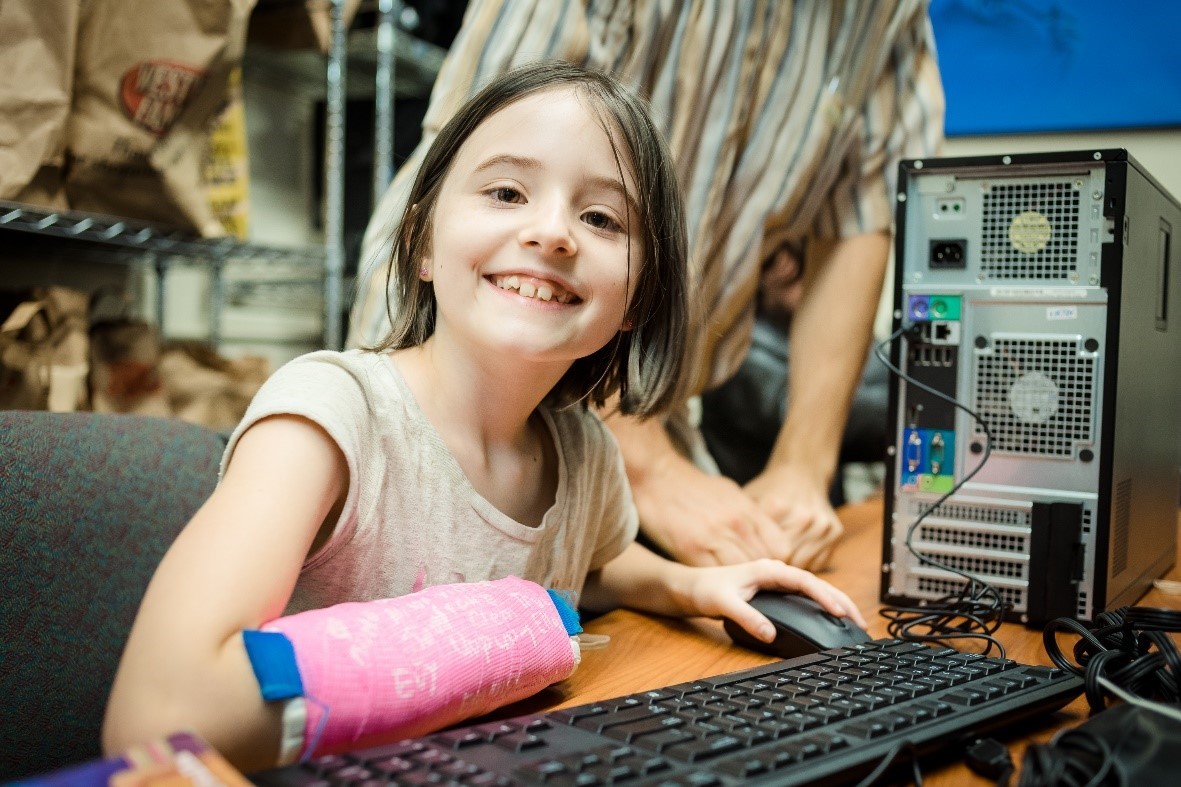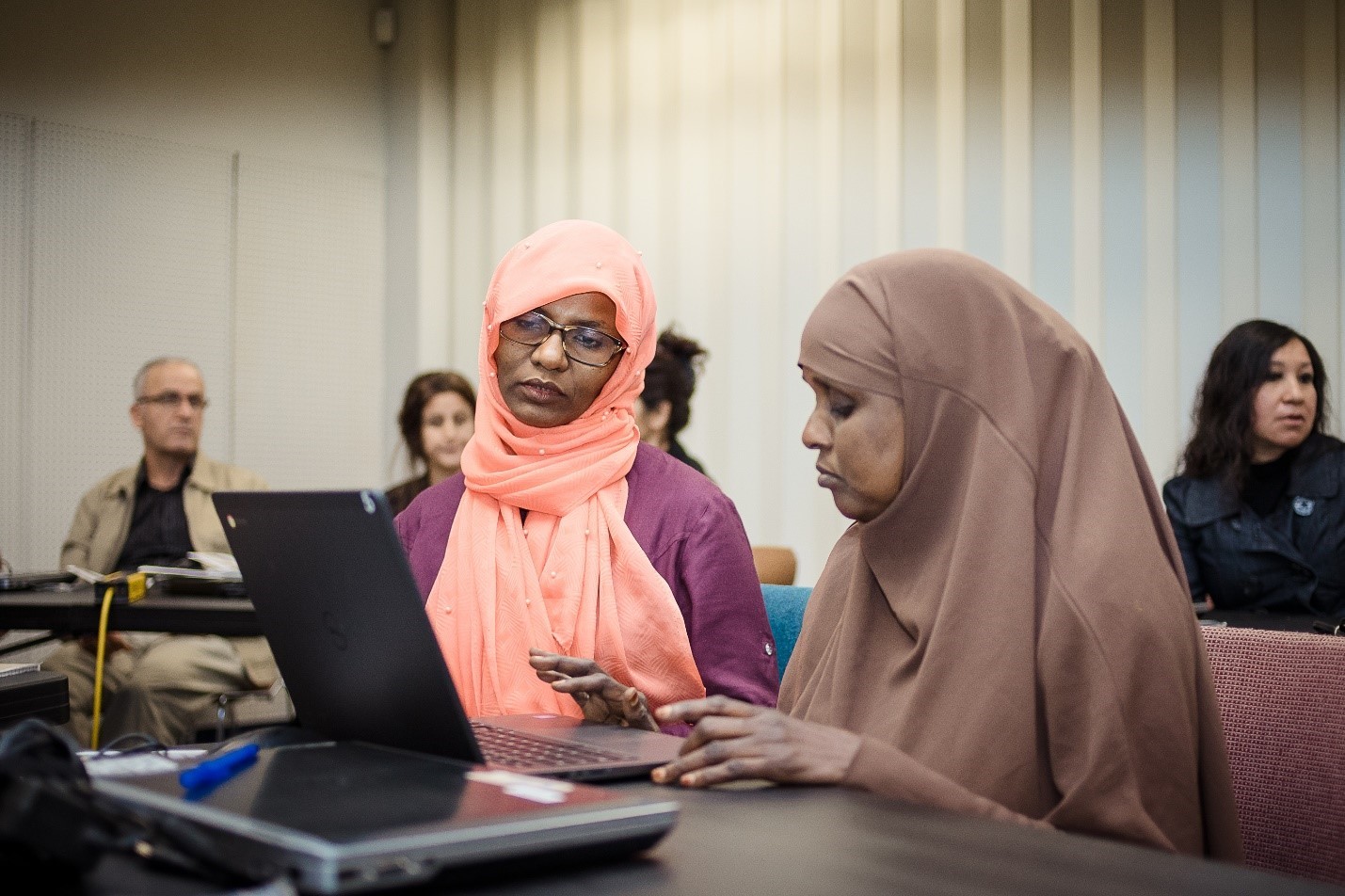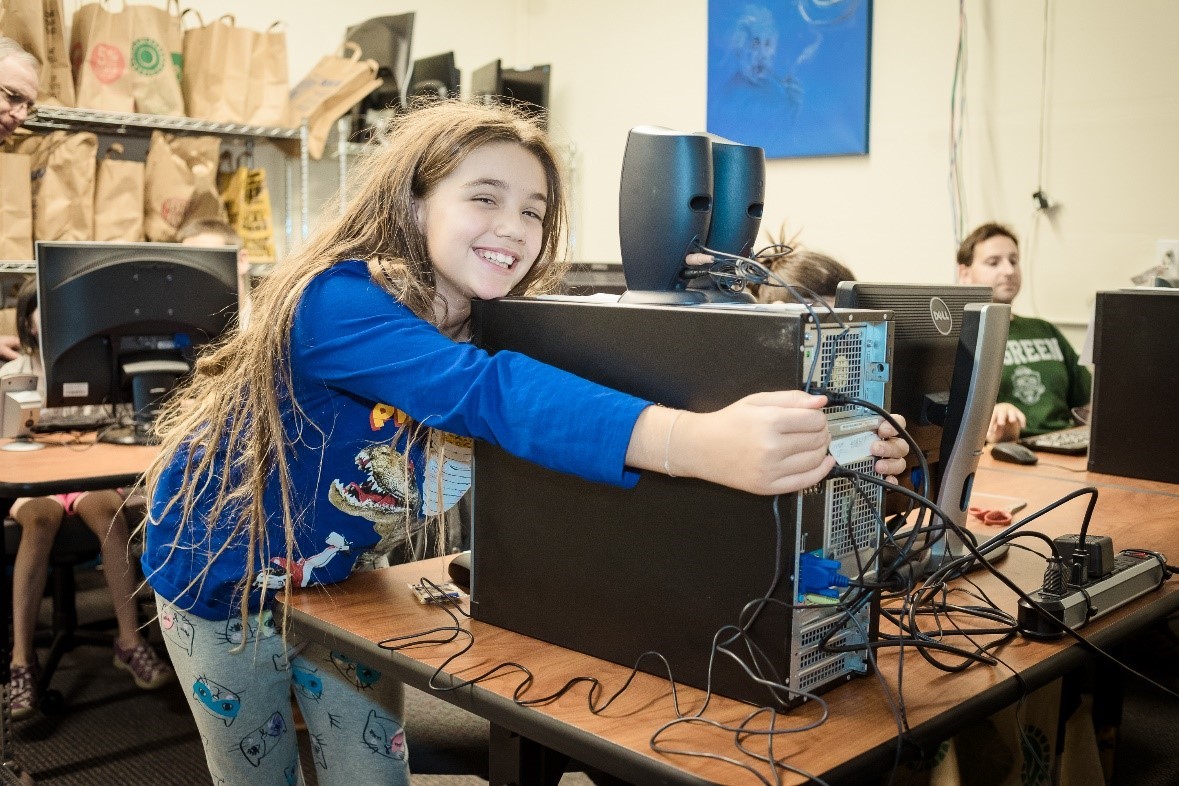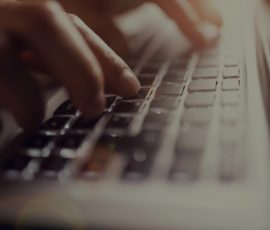The Murdock Trust invests in capacity-building projects at nonprofit organizations across the Pacific Northwest. When one grant helps create new opportunities and increases the impact of a nonprofit’s work down the line, we call it the ripple effect. The Stories of Impact series on our website helps shed light on the outcomes driven by some of the outstanding organizations the Murdock Trust has been fortunate to support in recent years.

“I received my first laptop when I was a junior in high school, in foster care,” says Juan Muro, Jr., executive director of Free Geek. “I thought I was always going to end up some manager at a gas station. But for the first time ever I had a device that gave me a view of the world that existed beyond what I knew.”
Research shows what Juan learned first-hand: that in a world growing more digital by the day, access to a device can change a life. Without digital access, critical tasks like applying for jobs, completing homework, accessing medical records, and communicating with loved ones become a daily challenge. Yet 150,000 individuals in Oregon have never owned a computer, says Juan.
At the same time, 50 million tons of e-waste are generated every year around the world. That’s equivalent to throwing out 1000 laptops every second. Much of this “waste” is, in fact, electronic equipment parts that could be salvaged, repurposed, and distributed to those who need it, reducing the digital divide and our environmental footprint. That’s exactly what Free Geek based in Portland, OR, does, and thanks in part to capacity-building support in 2019, the nonprofit is poised for further community impact and national replication.

Building Capacity for Digital Inclusion
Free Geek was founded as part of a community-wide public event on Earth Day, 2000. Over the years, in addition to its technology refurbishment program, the nonprofit has added Digital Inclusion programming that supports education, workforce development, and digital literacy. In 2016, they began to develop critical community partnerships, such as Welcome to Computers classes with Multnomah County Libraries. Free Geek had a vision for how their impact could grow, but as a small nonprofit, they needed capacity-building support to get there.
“The community began to tell us, ‘We need more!’ But we were like, ‘We don’t have it,’” says Juan. So they began applying for grants.
In 2019, Free Geek received a grant from the Murdock Trust to support new staff and programming as part of an organizational restructure. Under the new model, Free Geek could more effectively go into the community and partner with existing nonprofits for educational programs, while freeing up production space to refurbish more technology.
“The grant really helped us focus on how we were going to pivot and transform the education piece to actually go into the community,” says Juan. “The educational component that we built up through this grant – it allowed us to open up a whole new center.”
Today, Free Geek has multiple new digital equity centers in the hearts of the communities that need them most, walking with individuals at every step from receiving their first computer to full digital literacy.
“We were able to go from serving 300-500 people per year, specifically with free education and free devices, to serving 1,500-2,000 per year,” says Juan. “And that’s going to continue to increase. Our next goal is 4,000.”

Centering Communities, Growing Nationally
Today, Free Geek leadership heads the Coalition of Digital Equity (previously the Digital Inclusion Network) through the City of Portland, and the nonprofit is in the process of replicating nationally. It relies on its model of centering the communities it serves, every step of the way.
“Five years ago, we were just a small organization, and [the Murdock Trust] came at a time when we needed some support to build more education and workshops that met the needs beyond just the basics and gave us a little bit of capacity to extend those resources out,” says Juan.
Jack Murdock knew the power of technological innovations that could strengthen communities and change the world for the better; he helped create some himself. As we look at the future of our region, we are grateful for nonprofits like Free Geek who are carrying on Jack’s legacy through making technology truly serve the common good, for the flourishing of all communities.







